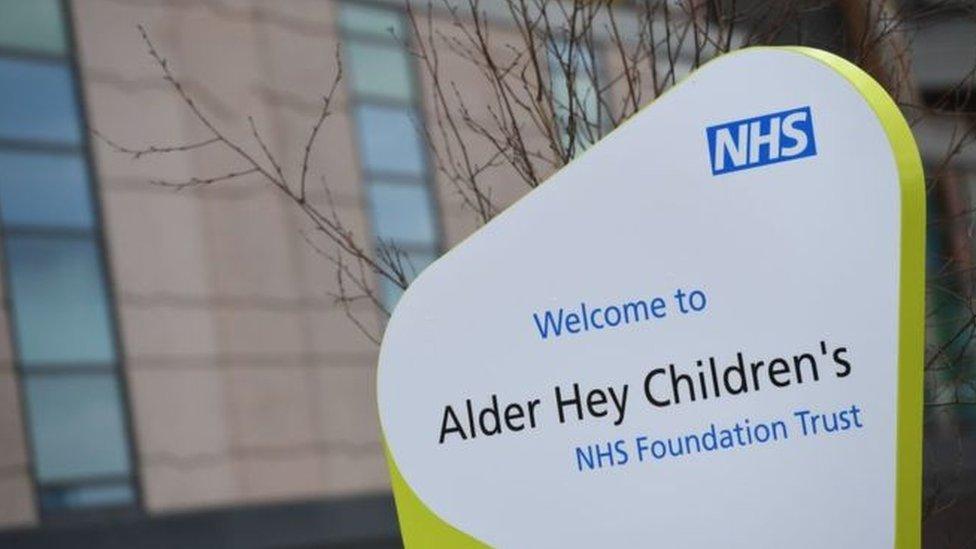Post-mortems carried out on 161 NI infants in Liverpool
- Published

Health officials have said they recognise travelling to England "may add to the distress" of families
The bodies of 161 infants from Northern Ireland had to be transported to Liverpool for post-mortem examinations last year.
The service closed in Northern Ireland in January 2019 when the remaining consultant left.
Since then, bodies have been taken by ferry and air, accompanied by funeral directors, to Alder Hey Hospital.
Health officials have acknowledged the travel "may add to the distress" of families at a "devastating time".
"Parents are receiving the results of the post-mortems much more quickly than before, which is particularly helpful for those families wishing to use the information to inform their family planning," a spokesperson added.
The figures are for consented post-mortem examinations.
The coroner may direct a post-mortem examination is carried out in the event of a baby dying or being stillborn - non-consensual post-mortem examinations - but this happens in a very small number of cases every year in Northern Ireland.
Capacity constraints
When ģÉČËŋėĘÖ News NI broke the story on infant post-mortem examinations, Health and Social Care Northern Ireland said they were exploring an all-Ireland option. Those discussions are continuing.
In a statement to the ģÉČËŋėĘÖ, a spokesperson said: "The feasibility of an all-island approach would only be deliverable in the longer term, due to current capacity constraints and the time required for new trainees to specialise in this area."
The service is primarily designed to provide answers for parents as to the possible cause of death of their baby or young child.
It can also help provide answers for couples who have suffered pregnancy loss including infants that are stillborn.
Most babies travel to Alder Hey on the ferry in the care of an undertaker. There is also an option for parents to travel too.
The Health and Social Care Board and the Public Health Agency have begun evaluating the service to capture the experiences of parents and NI staff, as well as gathering the views of the undertakers and staff at Alder Hey.
The NI health authorities including the health trusts have also been liaising closely with key charities and families affected by bereavement to ensure the arrangements are as sensitive and dignified as possible.
- Published13 November 2018
- Published12 March 2019